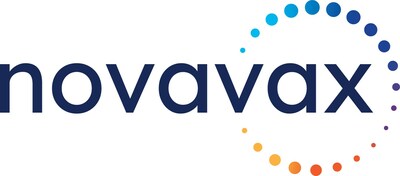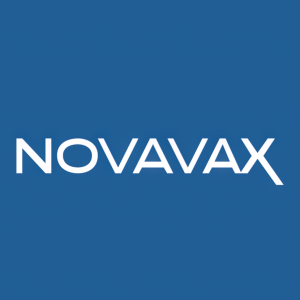SHIELD-Utah Study Shows Novavax's COVID-19 Vaccine Induces Lower Reactogenicity Symptoms Compared to mRNA
Novavax (NVAX) has announced preliminary results from the SHIELD-Utah study comparing its COVID-19 Vaccine (2024-2025 Formula) targeting the JN.1 strain with Pfizer-BioNTech's mRNA vaccine. The real-world study, conducted between September-December 2024, demonstrated significantly lower reactogenicity in Novavax recipients.
Key findings show Novavax recipients experienced an average of 1.7 symptoms versus 2.8 in Pfizer-BioNTech recipients. Only 24.2% of Novavax recipients reported Grade 2 or higher symptoms compared to 43.8% for Pfizer-BioNTech. Local reactogenicity events were 12.5% lower in Novavax recipients.
The study, conducted at University of Utah Health with 219 Novavax and 369 Pfizer-BioNTech recipients, also revealed reduced impact on daily activities. Novavax recipients reported fewer hours of missed work (0.7 vs 1.4h) and less productivity impact (0.8 vs 2.4h) compared to Pfizer-BioNTech recipients.
Novavax (NVAX) ha annunciato i risultati preliminari dello studio SHIELD-Utah che confronta il suo vaccino COVID-19 (Formula 2024-2025), mirato al ceppo JN.1, con il vaccino a mRNA di Pfizer-BioNTech. Lo studio sul campo, condotto tra settembre e dicembre 2024, ha evidenziato una reattogenicità significativamente inferiore nei destinatari di Novavax.
I dati principali mostrano che i destinatari di Novavax hanno sperimentato in media 1,7 sintomi rispetto ai 2,8 di quelli di Pfizer-BioNTech. Solo il 24,2% dei destinatari di Novavax ha riportato sintomi di grado 2 o superiore, contro il 43,8% di Pfizer-BioNTech. Gli eventi di reattogenicità locale sono risultati inferiori del 12,5% nei soggetti trattati con Novavax.
Lo studio, condotto presso l'University of Utah Health con 219 destinatari di Novavax e 369 di Pfizer-BioNTech, ha inoltre rilevato un minore impatto sulle attività quotidiane. I destinatari di Novavax hanno segnalato meno ore di lavoro perse (0,7 vs 1,4 ore) e un impatto sulla produttività inferiore (0,8 vs 2,4 ore) rispetto a quelli di Pfizer-BioNTech.
Novavax (NVAX) ha anunciado resultados preliminares del estudio SHIELD-Utah que compara su vacuna contra el COVID-19 (fórmula 2024-2025), dirigida a la cepa JN.1, con la vacuna de ARNm de Pfizer-BioNTech. El estudio en condiciones reales, realizado entre septiembre y diciembre de 2024, mostró una reactogenicidad significativamente menor en los receptores de Novavax.
Los hallazgos clave indican que los receptores de Novavax experimentaron un promedio de 1,7 síntomas frente a 2,8 en los receptores de Pfizer-BioNTech. Solo el 24,2% de los receptores de Novavax reportaron síntomas de grado 2 o superior, en comparación con el 43,8% de Pfizer-BioNTech. Los eventos de reactogenicidad local fueron un 12,5% menores en los receptores de Novavax.
El estudio, realizado en University of Utah Health con 219 receptores de Novavax y 369 de Pfizer-BioNTech, también reveló un menor impacto en las actividades diarias. Los receptores de Novavax reportaron menos horas de trabajo perdidas (0,7 vs 1,4 horas) y menor impacto en la productividad (0,8 vs 2,4 horas) en comparación con los receptores de Pfizer-BioNTech.
노바백스(NVAX)는 JN.1 변이를 대상으로 한 2024-2025년형 COVID-19 백신과 화이자-바이오엔텍의 mRNA 백신을 비교한 SHIELD-Utah 연구의 예비 결과를 발표했습니다. 2024년 9월부터 12월까지 진행된 실제 환경 연구에서 노바백스 접종자의 반응원성(reactogenicity)이 현저히 낮은 것으로 나타났습니다.
주요 결과에 따르면 노바백스 접종자는 평균 1.7개의 증상을 경험한 반면, 화이자-바이오엔텍 접종자는 2.8개의 증상을 경험했습니다. 노바백스 접종자의 24.2%만이 2등급 이상의 증상을 보고한 반면, 화이자-바이오엔텍은 43.8%에 달했습니다. 국소 반응원성 사건은 노바백스 접종자에서 12.5% 더 적었습니다.
유타 대학교 헬스에서 219명의 노바백스 접종자와 369명의 화이자-바이오엔텍 접종자를 대상으로 실시한 이 연구는 일상 활동에 미치는 영향도 줄어든 것으로 나타났습니다. 노바백스 접종자는 업무 결근 시간이 0.7시간으로 화이자-바이오엔텍의 1.4시간보다 적었고, 생산성 저하 시간도 0.8시간으로 2.4시간보다 적었습니다.
Novavax (NVAX) a annoncé les résultats préliminaires de l'étude SHIELD-Utah comparant son vaccin COVID-19 (formule 2024-2025) ciblant la souche JN.1 au vaccin à ARNm de Pfizer-BioNTech. L'étude en conditions réelles, menée de septembre à décembre 2024, a montré une réactogénicité significativement moindre chez les receveurs de Novavax.
Les résultats clés indiquent que les receveurs de Novavax ont présenté en moyenne 1,7 symptôme contre 2,8 chez ceux de Pfizer-BioNTech. Seuls 24,2 % des receveurs de Novavax ont rapporté des symptômes de grade 2 ou plus, contre 43,8 % pour Pfizer-BioNTech. Les événements de réactogénicité locale étaient inférieurs de 12,5 % chez les receveurs de Novavax.
Cette étude, réalisée à l'University of Utah Health auprès de 219 receveurs de Novavax et 369 de Pfizer-BioNTech, a également révélé un moindre impact sur les activités quotidiennes. Les receveurs de Novavax ont signalé moins d'heures de travail perdues (0,7 vs 1,4 h) et un impact moindre sur la productivité (0,8 vs 2,4 h) comparativement aux receveurs de Pfizer-BioNTech.
Novavax (NVAX) hat vorläufige Ergebnisse der SHIELD-Utah-Studie bekannt gegeben, die seinen COVID-19-Impfstoff (Formel 2024-2025) gegen den JN.1-Stamm mit dem mRNA-Impfstoff von Pfizer-BioNTech vergleicht. Die Real-World-Studie, durchgeführt zwischen September und Dezember 2024, zeigte eine signifikant geringere Reaktogenität bei Novavax-Empfängern.
Wesentliche Ergebnisse zeigen, dass Novavax-Empfänger durchschnittlich 1,7 Symptome im Vergleich zu 2,8 bei Pfizer-BioNTech-Empfängern aufwiesen. Nur 24,2 % der Novavax-Empfänger berichteten über Symptome des Grades 2 oder höher, verglichen mit 43,8 % bei Pfizer-BioNTech. Lokale Reaktogenitätsereignisse waren bei Novavax-Empfängern um 12,5 % geringer.
Die Studie, durchgeführt an der University of Utah Health mit 219 Novavax- und 369 Pfizer-BioNTech-Empfängern, zeigte außerdem eine geringere Beeinträchtigung der täglichen Aktivitäten. Novavax-Empfänger meldeten weniger Arbeitsausfallstunden (0,7 vs. 1,4 Stunden) und geringere Produktivitätseinbußen (0,8 vs. 2,4 Stunden) im Vergleich zu Pfizer-BioNTech-Empfängern.
- Lower frequency and severity of side effects compared to competitor's vaccine
- Reduced impact on work productivity (0.8h vs 2.4h lost)
- Lower rate of Grade 2+ symptoms (24.2% vs 43.8%)
- 12.5% fewer local reactogenicity events than competitor
- Smaller study group for Novavax (219) compared to Pfizer-BioNTech (369)
- Results are preliminary, full publication pending
Insights
The preliminary results from the SHIELD-Utah study represent a meaningful differentiation point for Novavax in the competitive COVID-19 vaccine market. Healthcare workers receiving Novavax's protein-based JN.1 COVID-19 vaccine experienced 39% fewer systemic symptoms compared to those receiving Pfizer-BioNTech's mRNA vaccine (1.7 vs 2.8 symptoms). More significantly, only 24.2% of Novavax recipients experienced Grade 2 or higher symptoms versus 43.8% of Pfizer-BioNTech recipients - a substantial 19.6 percentage point difference.
The real-world impact on productivity is particularly noteworthy. Novavax recipients reported 50% less time with reduced work activity (0.7 vs 1.4 hours) and 67% less productivity loss (0.8 vs 2.4 hours). For healthcare systems and employers, these findings translate to tangible economic benefits through reduced absenteeism and maintained productivity.
This study reinforces Novavax's value proposition in a market where reactogenicity concerns influence vaccine choice. With these data presented at a major international conference, Novavax strengthens its competitive positioning against mRNA-based alternatives. The company's strategic emphasis on their Matrix-M adjuvanted platform technology indicates these tolerability advantages could extend beyond COVID-19 to other pipeline candidates, potentially creating additional long-term value drivers.
- Preliminary data showed Novavax's non-mRNA JN.1 COVID-19 vaccine induced lower frequency and severity of short-term side effects and impact on daily life compared with Pfizer-BioNTech mRNA vaccine
- Full results will be submitted for publication later this year
"The risk of side effects or reactogenicity has been shown to be a major decision factor for those opting to get vaccinated. Our findings of lower frequency and intensity of reactogenicity symptoms from the protein-based COVID-19 vaccine observed in SHIELD-
As in previous studies, the SHIELD study found health care workers who received the Novavax vaccine reported significantly fewer reactogenicity events than Pfizer-BioNTech recipients. On average, Novavax recipients experienced 1.7 symptoms versus 2.8 systemic symptoms in Pfizer-BioNTech recipients;
"Today's results add to an increasing body of research underscoring the tolerability of Novavax's COVID-19 vaccine," said Ruxandra Draghia-Akli, MD, PhD, Executive Vice President and Head of Research and Development, Novavax. "Our protein-based nanoparticles and Matrix-M® adjuvant are the foundation of our COVID-19 vaccine. Our new R&D pipeline is focused on delivering more assets built on this powerful technology platform, including the use of our Matrix M adjuvant, which has been associated with a favorable tolerability profile."
SHIELD-
About Novavax
Novavax, Inc. (Nasdaq: NVAX) tackles some of the world's most significant health challenges by leveraging its scientific expertise in vaccines and its cutting-edge technology platform, which includes protein-based nanoparticles and its Matrix-M adjuvant. The Company's growth strategy is focused on building new and diversified partnerships via the out-licensing of its technology platform and vaccine assets earlier in the development process. These strategic collaborations are fueled by smart investments in a growing early-stage pipeline starting with the Company's core expertise in infectious disease and potentially expanding into other disease areas. Please visit novavax.com and LinkedIn for more information.
Forward-Looking Statements
Statements herein relating to the future of Novavax, its operating plans and prospects, its updated combined annual Research & Development and Selling, General and Administrative expense target for FY 2025, the potential for its COVID-19-Influenza Combination (CIC) and stand-alone influenza trial to be used for accelerated approval and the timing of updates related thereto, are forward-looking statements. Novavax cautions that these forward-looking statements are subject to numerous risks and uncertainties that could cause actual results to differ materially from those expressed or implied by such statements. These risks and uncertainties include, without limitation, challenges pursuing additional partnership opportunities; challenges satisfying, alone or together with partners, various safety, efficacy and product characterization requirements, including those related to process qualification, assay validation and stability testing, necessary to satisfy applicable regulatory authorities; challenges or delays in conducting clinical trials or studies for its product candidates; challenges or delays in obtaining regulatory authorization for its product candidates, including for future COVID-19 variant strain changes, its CIC vaccine candidate, its stand-alone influenza vaccine candidate or other product candidates; manufacturing, distribution or export delays or challenges; Novavax's substantial dependence on Serum Institute of India Pvt. Ltd. and Serum Life Sciences Limited for co-formulation and filling Novavax's COVID-19 vaccine and the impact of any delays or disruptions in their operations; difficulty obtaining scarce raw materials and supplies including for its proprietary adjuvant; resource constraints, including human capital and manufacturing capacity; constraints on Novavax's ability to pursue planned regulatory pathways, alone or with partners; challenges in implementing its global restructuring and cost reduction plan; challenges in obtaining commercial adoption and market acceptance of its updated 2024-2025 formula COVID-19 vaccine or any COVID-19 variant strain containing formulation, or for its CIC vaccine candidate and stand-alone influenza vaccine candidate or other product candidates; challenges meeting contractual requirements under agreements with multiple commercial, governmental, and other entities, including requirements to deliver doses that may require Novavax to refund portions of upfront and other payments previously received or result in reduced future payments pursuant to such agreements and challenges in amending or terminating such agreements; challenges related to the seasonality of vaccinations against COVID-19; challenges related to the demand for vaccinations against COVID-19 or influenza; challenges in identifying and successfully pursuing innovation expansion opportunities; Novavax's expectations as to expenses and cash needs may prove not to be correct for reasons such as changes in plans or actual events being different than its assumptions; and those other risk factors identified in the "Risk Factors" and "Management's Discussion and Analysis of Financial Condition and Results of Operations" sections of Novavax's Annual Report on Form 10-K for the year ended December 31, 2023, and subsequent Quarterly Reports on Form 10-Q, as filed with the Securities and Exchange Commission (SEC). We caution investors not to place considerable reliance on forward-looking statements contained in this press release. You are encouraged to read our filings with the SEC, available at www.sec.gov and www.novavax.com, for a discussion of these and other risks and uncertainties. The forward-looking statements in this press release speak only as of the date of this document, and we undertake no obligation to update or revise any of the statements. Our business is subject to substantial risks and uncertainties, including those referenced above. Investors, potential investors and others should give careful consideration to these risks and uncertainties.
Contacts:
Investors
Luis Sanay, CFA
240-268-2022
ir@novavax.com
Media
Giovanna Chandler
240-720-7804
media@novavax.com
![]() View original content to download multimedia:https://www.prnewswire.com/news-releases/shield-utah-study-shows-novavaxs-covid-19-vaccine-induces-lower-reactogenicity-symptoms-compared-to-mrna-302428227.html
View original content to download multimedia:https://www.prnewswire.com/news-releases/shield-utah-study-shows-novavaxs-covid-19-vaccine-induces-lower-reactogenicity-symptoms-compared-to-mrna-302428227.html
SOURCE Novavax, Inc.







